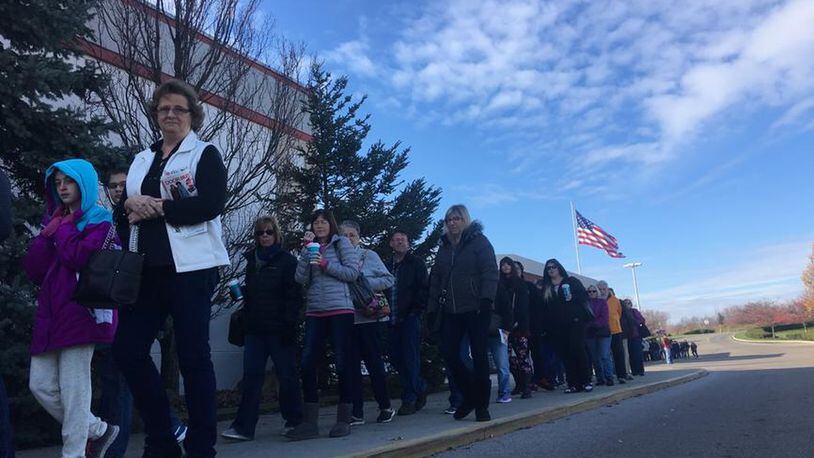But many have already started their holiday shopping, taking advantage of the deals retailers began offering early this month in what Ohio Council of Retail Merchants president and CEO Gordon Gough calls “Black November.”
• Store hours: Here's when retailers will open for Thanksgiving, Black Friday sales
Still, “Black Friday remains the ‘official’ kick-off to the holidays and an important tradition for millions of shoppers across the country. There is no indication that will change in the foreseeable future,” according to NRF.
Ashley Othersen of Eaton is one of those shoppers who sees Black Friday as the starting point for holiday shopping.
“Usually on Black Friday I try to get the sale items and then after that … I’ll go and get the bigger items after Black Friday throughout the rest of December,” Othersen said.
And while Black Friday shopping, Othersen said she prefers the in-store shopping experience to see and feel what she’s buying. And even as online and earlier sales grow, Black Friday’s experience can’t be rivaled elsewhere, said Riley Dugan, a marketing professor at the University of Dayton.
»RELATED: Kroger offering new way to order groceries
"Sometimes people like Black Friday shopping , because they like being among crowds of people," he said. "T hey feel good about themselves because they're getting deals , where evolutionary we evolve to kind of feel like hunter gatherers."
Even as millions of consumers will head to stores, online sales are predicted to jump 15 percent this year, according to Adobe Analytics, a result of changing consumer habits favoring convenience. Last year, shoppers spent nearly $20 billion online during the five day span from Thanksgiving to Cyber Monday alone.
" Retail is retail , all we're going to do is respond to the manner in which the consumer wants to make the transaction," said Gordon Gough, president and CEO of the Ohio Council of Retail Merchants.
The line between online and brick-and-mortar is blurry, as being able to touch and see a product in stores can often drive a consumer to purchase it later online, Gough said.
»RELATED: 5 ways your smartphone can enhance your shopping experience this holiday season
Those consumers could be waiting for deals, with NRF reporting that 85 percent of consumers have backed out of purchasing an item because it wasn't on sale. And while the deals this coming week may appear to be the best retailers have to offer, Dugan said shoppers should hold out even longer for merchandise that didn't sell during the holidays.
Retailers will also offer deals early in January to attract shoppers who received gift cards during the holidays, Gough said.
The average holiday shopper is expected to spend $1007 this year, according to NRF. In total, consumers are expected to spend between $717 billion to $721 billion holiday shopping this year.
The 4.3 percent to 4.8 percent increase between November and December is evidence of a healthy economy, where shoppers are willing to spend more amid low unemployment and more take-home pay.
• Area stores training employees using Virtual Reality
• 5 ways new tech will change your holiday shopping experience this year
• Store hours: Here's when retailers will open for Thanksgiving, Black Friday sales
• Amazon plans to split HQ2 between two cities
• Ohio shifting red could impact federal resource allocation
By the numbers
$20: Billion spent online between Black Friday and Cyber Monday 2017
15: Percent expected increase in online sales
$1007: Average amount a shopper will spend
4.3: percent expected increase in holiday spending at minimum
$5: billion spent online on Black Friday
$6.6: billion spent online on Cyber Monday
Plan your shopping
Check out our interactive shopping page at daytondailynews.com/retail where you can find out when stores open on Thanksgiving and Black Friday.
About the Author
